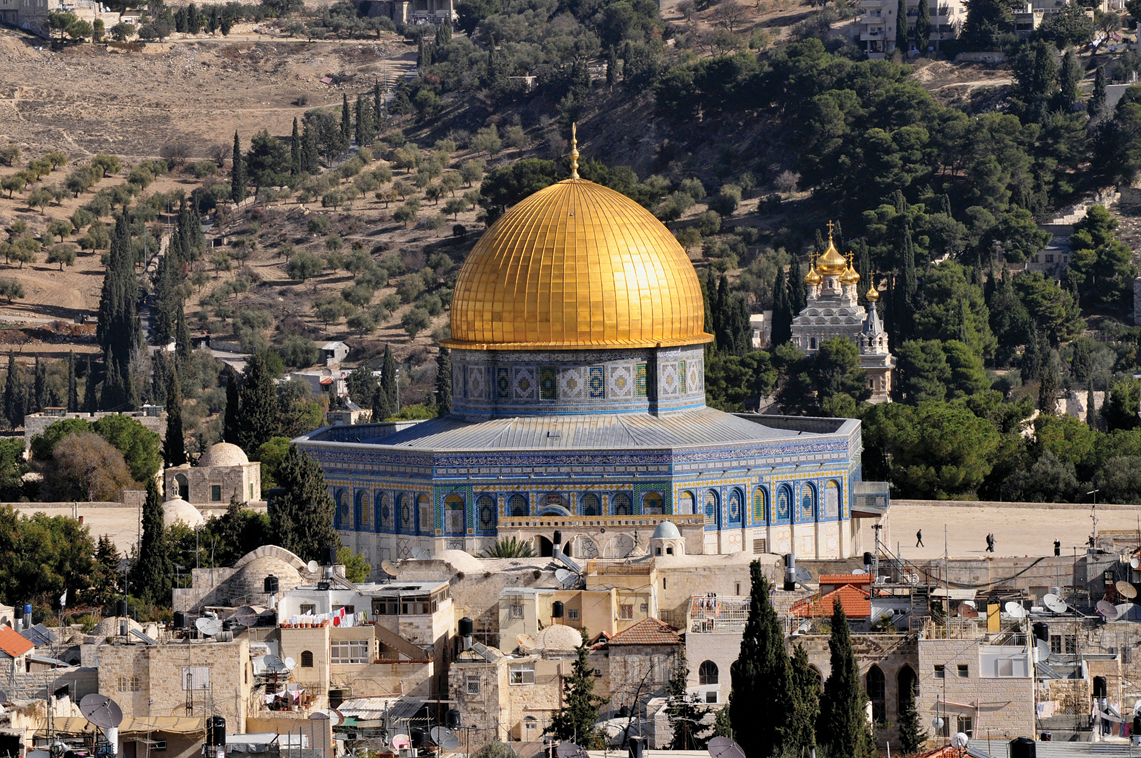A History of World Societies:
Printed Page 238
A History of World Societies Value
Edition: Printed Page 234
The Tenets of Islam
Islam, the strict monotheistic faith that is based on the teachings of Muhammad, rests on the principle of the oneness and omnipotence of God (Allah). The word Islam means “surrender to God,” and Muslim means “a person who submits.” Muslims believe that Muhammad was the last of the prophets, completing the work begun by Abraham, Moses, and Jesus. According to the Qur’an, the coming of the final prophet was acknowledged by both Jewish and Christian authorities. The Qur’an asserts that the Prophet Muhammad descended from Adam, the first man, and that the Prophet Abraham built the Ka’ba. The Qur’an holds that the holy writings of both Jews and Christians represent divine revelation, but it claims that both Jews and Christians tampered with the books of God.
Muslims believe that they worship the same God as Jews and Christians. Monotheism had flourished in Middle Eastern Semitic and Persian cultures for centuries before Muhammad. Islam appropriates much of the Old and New Testaments of the Bible but often retells the narratives with significant shifts in meaning. Islam recognizes Moses’s laws about circumcision, ritual bathing, and restrictions on eating pork and shellfish, and the Qur’an calls Christians “nearest in love” to Muslims. Muhammad insisted that he was not preaching a new message; rather, he was calling people back to the one true God, urging his contemporaries to reform their lives, to return to the faith of Abraham, the first monotheist.
Unlike the Old Testament, much of which is a historical narrative, or the New Testament, which is a collection of essays on the example and teachings of Jesus, the Qur’an is a collection of directives issued in God’s name. Its organization is not strictly topical or chronological. To deal with seeming contradictions, later commentators explained the historical circumstances behind each revelation.
The Qur’an prescribes a strict code of moral behavior. A Muslim must recite the profession of faith in God and in Muhammad as his prophet: “There is no God but God, and Muhammad is his Prophet.” A believer must also pray five times a day, fast and pray during the sacred month of Ramadan, make a pilgrimage (hajj) to the holy city of Mecca once during his or her lifetime, and give alms to the Muslim poor. These fundamental obligations are known as the Five Pillars of Islam.

Islam forbids alcoholic beverages and gambling. It condemns usury in business — that is, lending money and charging the borrower interest — and taking advantage of market demand for products by charging high prices. Muslim jurisprudence condemned licentious behavior by both men and women and specified the same punishments for both. (By contrast, contemporary Frankish law punished prostitutes but not their clients.)
Like the Christian Judgment Day, on the Islamic Judgment Day God will separate the saved and the damned. The Qur’an describes in detail the frightful tortures with which God will punish the damned and the heavenly rewards of the saved and the blessed.